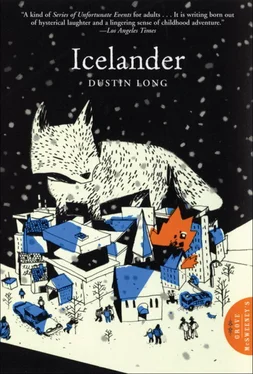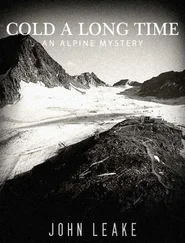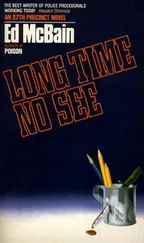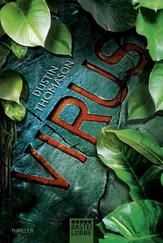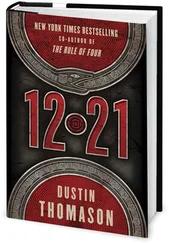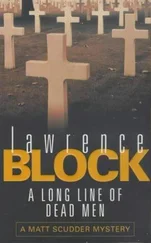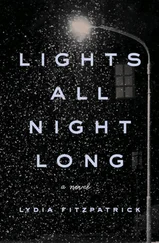“Well, that certainly is vague.”
“I’m sorry, but she made me promise that I wouldn’t tell anyone,” I said, rubbing my temples and trying to ignore Connie. “And I think I have to respect her last wish. And you know, earlier, like I said, I didn’t know for a fact that what happened in Denmark had anything to do with her murder—she might not have confronted the person yet, for all I knew. And—even if she had—that didn’t necessarily mean that the person she confronted was the murderer. And so I figured that if the police could solve the case without any of this coming out… I mean, how could I tell the police if I couldn’t tell Blaise? I just couldn’t betray Shirley’s final trust.”
“I appreciate your loyalty,” Blaise said, settling back into his seat, his face unnaturally pale and devoid of expression. “But of necessity that loyalty must now be superseded.”
“What does all of this have to do with Prescott and Vanaheim and all of that?” Nathan asked, grabbing my arm to hold me up as I leaned perhaps too far to one side.
“Ah,” I said, raising the gloved index finger of my right hand. I put my left hand behind my back; it felt almost as if it had been dipped in syrup. “That’s where things get interesting. You see, Wible and Pacheco, here, were actually hired by Shirley herself.”
“How—” Wible began.
“Because Shirley herself told me that she planned to hire you guys. She thought somebody was trying to stop her from writing the Thomas Kyd version of Hamlet , because someone had broken into her house and stolen a bunch of her research. But actually it was her draft of the Vanaheimic Hamlet that they had been after. And that’s safe and sound in my house. You see, Gerd—”
“Enough of this,” Blaise bellowed, to which Garm offered a bark of critique. “You must just tell me how this is related to the death of my wife.”
“I—” I suddenly lost my breath, then, and I felt as if I could cry. All over again. I realized that I’d been so busy trying to explain everything that I’d almost forgotten Shirley was really dead.
“Well, the murderer was working with Gerd,” I said, clenching my eyes and trying to remain calm. “I was just getting to that. But the Hamlet thing—admittedly, that’s not why he did it. It was just a sick old man and his wounded pride… He was the one who—” But then I looked at Connie.
“No, I’m sorry, but I’m just going to have to explain all of this to you later, Blaise,” I said. “In private. Because you’re the only one who needs to know about this part. Some things need to remain personal.” [49] This is the third of the aforementioned semi-significant absences. Though Our Heroine claims, here, that she knows what this secret is and that she will “explain [it] later,” I can find no place in the text where she exhibits the slightest knowledge of said secret. One must conclude that she is a liar. Does she know what happened in Denmark? Doubtful. I would contend, rather, that her assertion to the contrary is included for the sole purpose of tormenting me with the possibility that she knows something that I do not.
I squinted my eyes at Connie then and waved an admonishing finger at her.
“Okay. You’re obviously drunk,” Connie said, slapping the cushy arm of her chair. “I mean, what is the point of all of this? If you actually do know who killed Shirley, could you please just slur it to us already? Or, better yet, slur it to the police… No, scratch that; tell me and then tell the police. But spit it out!”
I stuck my tongue between my teeth and gave her my most lethal glare.
“It was Surt who did these things!” my father suddenly yelled.
“Well,” I said, trying again to straighten up, “you’re all aware of my father’s feelings on the subject.”
No one responded, though I felt all of their eyes upon me. Fourteen, counting Garm.
“All right. Fine,” I said. “It was Surt. He helped Gerd with her plan, he was in Denmark with Shirley, and he killed Shirley when she confronted him about what he’d done to her there. It was Surt all along.” I stumbled a bit then, in a momentary swoon, and in my grab at the mantel for support, I accidentally knocked off Hubert’s plaster bust of Orson Welles. It shattered and scattered across the floor. I’m afraid this may have looked like a dramatic gesture.
“Well, what a shocker,” Connie replied in what she must have imagined was a dry tone.
I shook my head, then, perhaps a tad too rapidly.
“No… You don’t understand. That’s not the end. I know who Surt really is,” I tried to tell her.
At least that’s what went through my head.
But that was the point at which I fell to the floor.
A wave of pleasure whelmed over me.
“God, I’m calling an ambulance,” I heard Connie say.
My whole body felt dead—like an arm that had been slept on—but my mind was active, looking out of it, at all of these legs and feet moving toward me, at Garm licking me, at broken pieces of Orson Welles strewn all around me… But I didn’t care about any of it; I was euphoric.
Wible and Pacheco grabbed me by the armpits and helped me to my feet, and—after a brief vision of the color red—sensation prickled back into my limbs.
“I’m sorry,” I said. “I’ve been drugged and stuff.”
“It is okay,” someone answered. “You should sit down.”
So they set me down, then, in the big plush chair that Connie had been sitting in.
“An ambulance is on its way,” she announced, coming into the room through the hall door. I didn’t realize she’d been gone.
“No. I do not want this,” I said. “I’m fine. I just need some fresh air.”
Nathan peeled the wet glove from my left hand, and I looked. Just plopped there bloody on the armrest, the hand didn’t resemble anything. Though I half-expected it to start flopping around.
“I need to go outside,” I said.
“I think you should probably just sit here until the ambulance arrives,” Nathan told me.
“No.” I was trying to speak clearly. “I will go to the hospital. I will get into an ambulance and go there. But I really don’t want to wait in here before I do so.”
“Regardless of what you want,” Connie said, “I think that waiting in here would be the wisest thing for you to do.”
“No,” I told her. “You think wrong. It would be wiser for me to wait outside. I should cool my body down. Make my blood flow less freely.”
None of them were medically expert enough to argue with the logic of this, so after only a moment’s hesitation Wible and Pacheco helped me stand again, and I walked of my own power out to the porch.
Everyone followed me out, then. Even my dad, who was strangely silent. And the night was beautiful—black and blue and cold. But I was still feeling a bit giddy.
I was feeling ecstatic, actually—out of myself, and I wanted to finish telling them everything, finish bringing it all out into the open; I had to turn around and grab hold of somebody . Which I did—tightly by the shoulders—and then I whispered to him the final secret. [50] Who? Whom? To whom did she whisper this? And what did he do with this information (surely a lie though it was)? Furthermore, was this mindless slander on her part, or was it carefully calculated toward a more terrible effect? After all, though Our Heroine claims throughout the novel to be entirely unmotivated by such petty concerns as desire for revenge, surely she was aware that others in the company were not so civilized; Valison was strangled shortly after the events of this novel, and it is my belief that Our Heroine indirectly killed him with this whisper, planting the idea in the mind of the true murderer. She will not deceive me as she did once before.
That it was Magnus. That the author of all my mother’s mysteries had been the villain behind many of them. That he’d been the one who murdered Shirley. That he was the true face behind the many masks of Surt and that he always had been. [51] The suggestion, here—that Magnus Valison was the true identity of the arch-criminal, Surt—must, finally, exterminate any possible belief in the validity of this text. Anyone who ever met the man in the final years of his life can attest to the fact that he had neither the disposition nor the physical ability to perform any of the deeds ascribed to Surt in the Memoirs , and this suggestion to the contrary betrays the novel’s heavy reliance on the reportage of “Constance Lingus,” who—not long after the period of the novel’s action—suggested a similar thesis in her weekly tabloid column. She elaborated this claim into its most libelous form during the course of the already-cited article in which she published excerpts of Shirley MacGuffin’s supposed Vanaheimic version of the Hamlet story. The Reader will forgive me if I question Miss Lingus’s journalistic integrity and if I suggest that—in constructing this “factually based” fiction—the Author should have stuck more closely to the confirmable facts. Bear in mind that I, of all people, should know if there were any truth in this assertion. Being so close to Magnus Valison and so knowledgeable on the subject of Surt, I think I would have known if they were the same person. Never mind how, but I would have known.
Читать дальше
